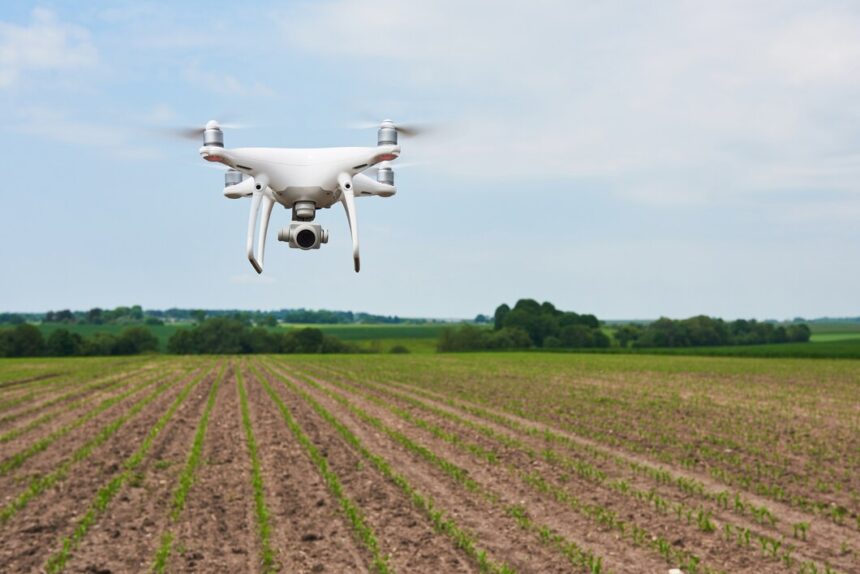Technology plays a pivotal role in modernizing agriculture and improving farm management practices. In South Africa, where farming faces unique challenges such as climate variability and resource constraints, harnessing the power of technology can enhance productivity, sustainability, and profitability. Here are ten innovative ways that South African farmers can leverage technology for better farm management:
1. Precision Agriculture
Utilize precision agriculture technologies such as GPS-guided tractors, drones, and satellite imagery to optimize field operations. Precision farming enables farmers to precisely apply inputs such as fertilizers, pesticides, and water, leading to improved resource efficiency and crop yields.
2. Smart Irrigation Systems
Install smart irrigation systems equipped with sensors and automated controls to optimize water usage and minimize water waste. These systems monitor soil moisture levels, weather forecasts, and crop water requirements to deliver the right amount of water at the right time, reducing water consumption and enhancing crop health.
3. Farm Management Software
Implement farm management software platforms to streamline administrative tasks, track farm activities, and make data-driven decisions. These software solutions provide tools for inventory management, crop planning, budgeting, and performance analysis, enabling farmers to optimize operations and improve efficiency.
4. Livestock Monitoring Systems
Deploy livestock monitoring systems equipped with sensors and RFID tags to track animal health, behavior, and productivity. These systems monitor parameters such as body temperature, activity levels, and feeding behavior, enabling early detection of health issues and improving overall herd management.
5. Weather Forecasting Tools
Access weather forecasting tools and mobile applications to make informed decisions about planting, harvesting, and crop protection. Real-time weather data and forecasts help farmers anticipate weather-related risks such as droughts, storms, and frost, enabling proactive risk management and resource allocation.
6. Market Intelligence Platforms
Subscribe to market intelligence platforms and online marketplaces to stay informed about commodity prices, market trends, and trade opportunities. These platforms provide valuable insights into supply and demand dynamics, enabling farmers to optimize production, pricing, and marketing strategies.
7. Remote Monitoring Cameras
Install remote monitoring cameras and surveillance systems to monitor farm infrastructure, equipment, and livestock remotely. These cameras provide real-time video feeds and alerts, enabling farmers to detect intrusions, thefts, or equipment malfunctions and respond promptly to security threats.
8. Soil Testing Technologies
Utilize soil testing technologies such as handheld analyzers, soil sensors, and laboratory services to assess soil fertility, pH levels, and nutrient deficiencies. Soil testing helps farmers make informed decisions about fertilization, soil amendments, and crop selection, optimizing soil health and productivity.
9. Livestock Tracking and Tracing
Implement livestock tracking and tracing systems to record and trace the movement of animals throughout the supply chain. These systems use RFID tags, electronic databases, and blockchain technology to ensure traceability, biosecurity, and compliance with regulatory requirements.
10. Mobile Apps for Farm Management
Download mobile applications specifically designed for farm management tasks such as record-keeping, scouting, and equipment maintenance. These apps provide convenient tools for managing farm operations on the go, enabling farmers to stay organized, efficient, and productive.
Technology offers South African farmers powerful tools and solutions for overcoming challenges, improving efficiency, and driving sustainable agricultural practices. By embracing innovations such as precision agriculture, smart irrigation systems, farm management software, and livestock monitoring technologies, farmers can optimize resource management, enhance productivity, and increase profitability. Investing in technology for better farm management not only benefits individual farmers but also contributes to the advancement of the agricultural sector as a whole, driving economic growth, food security, and environmental sustainability in South Africa.
Join 'Farmers Mag' WhatsApp Channel
Get the latest Farming news and tips delivered straight to your WhatsApp
CLICK HERE TO JOIN






